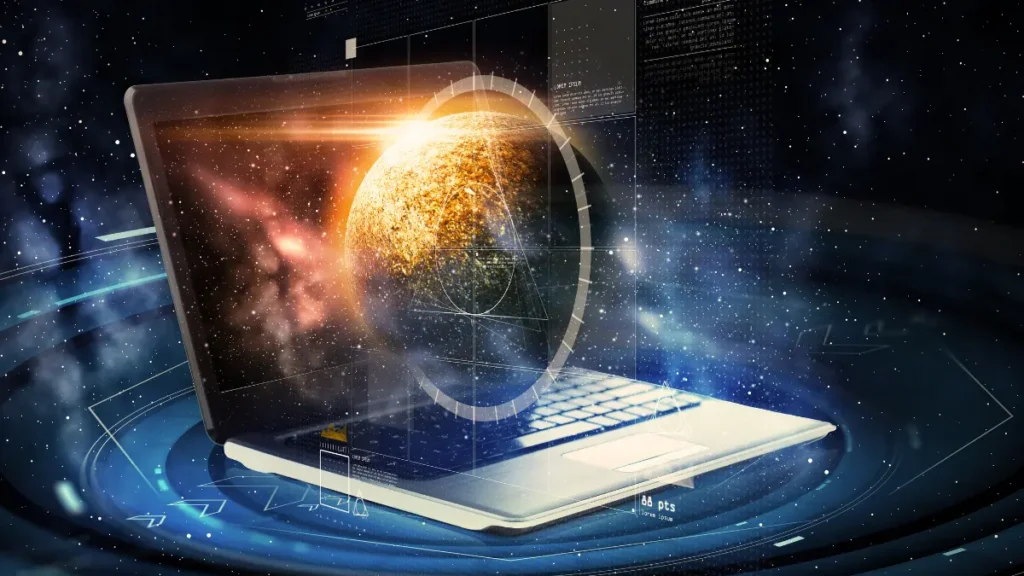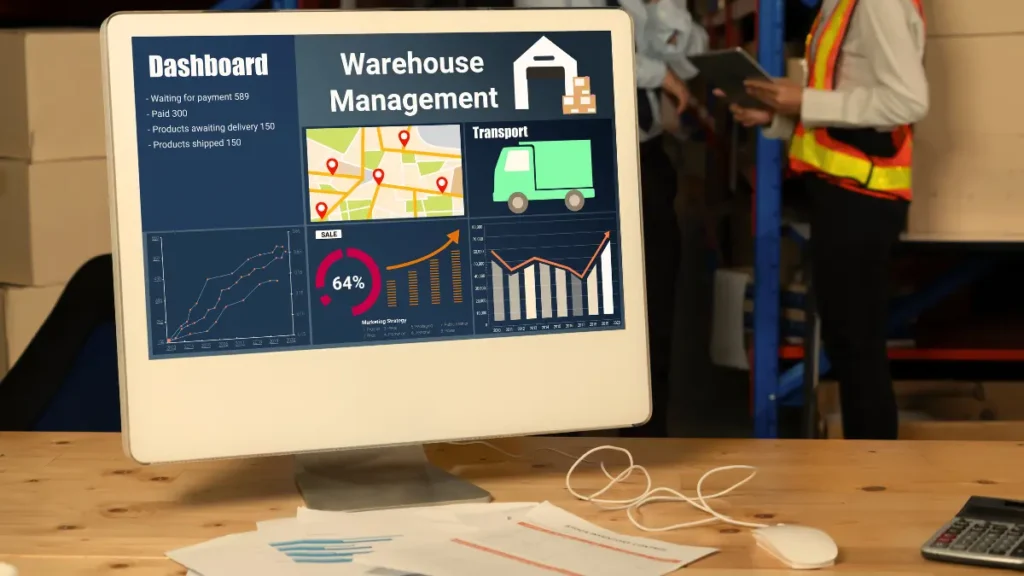Real-World Applications: You’ve probably heard how quantum technology is going to revolutionize computing and change the world. But beyond the hype, quantum tech is already making an impact in the real world. From enabling unhackable networks to designing new medicines, applications of quantum physics are becoming reality. Strap in as we explore how scientists are using the bizarre principles of quantum mechanics to build the future today.
You’ll come away amazed at how quantum computers are already exceeding classical systems and the doors this opens. We’ve got mind-bending cryptography, unbelievable sensing abilities, and even quantum artificial intelligence. The quantum world gets pretty weird, but that strangeness enables incredible innovation. Join us on a journey from abstract theory to real-world technology that seems almost magical. The quantum future is now.
Introduction to Quantum Technology

Quantum technology is an exciting new frontier that’s emerging at the intersection of quantum physics and computer science. Put simply, quantum technology aims to harness the weird properties of quantum mechanics – like superposition and entanglement – to build more powerful tools for sensing, computing, and communication.
Quantum Computing
The most famous application of quantum technology is quantum computing. Unlike classical computers that use binary bits, quantum computers use quantum bits or “qubits” that can exist in superposition. This allows a quantum computer to perform multiple calculations at once. Some of the world’s biggest tech companies like Google, IBM, and Microsoft are working to build practical quantum computers. If achieved, quantum computers could solve certain problems much faster than classical supercomputers. They could optimize complex systems like transportation networks or crack currently unbreakable encryption.
Quantum Sensing
Quantum sensors leverage quantum effects like superposition and entanglement to detect subtle changes in the environment with extreme precision. For example, quantum gravimeters and magnetometers could detect minute changes in gravitational and magnetic fields to help find underground resources like oil or minerals. Atomic clocks that use quantum effects already provide the ultra-precise timekeeping critical for technologies like GPS. Quantum sensors could enable huge leaps forward in fields like navigation, healthcare, and autonomous vehicles.
Quantum Communication
Quantum communication systems use quantum effects like entanglement to send messages in a way that’s impossible to eavesdrop on without destroying the message. This enables “unhackable” communication networks. China has already launched a quantum satellite and built a ground-based quantum network. If scaled up, quantum communication could provide a new level of security for applications like online banking, voting systems, and military networks.
The future of quantum technology is hard to predict but full of exciting possibilities. While still in its infancy, quantum computing, sensing, and communication could transform our world in the decades to come. The future is here – it’s just quantum.
Quantum Computing vs Classical Computing
If you’ve heard about quantum computing, you’re probably wondering how it’s different from the classical computing we know and love. In short, quantum computers utilize the strange laws of quantum mechanics to solve certain problems much faster than classical computers ever could.
A classical computer has bits that can represent either a 0 or a 1. A quantum computer, on the other hand, uses quantum bits or “qubits” that can be in a superposition of states, representing a 0 and 1 at the same time. This allows a quantum computer to perform many calculations in parallel. For certain complex problems, this can provide an exponential speedup over classical computing.
Some of the most promising applications of quantum computing include:
•Optimization problems: Finding the optimal solution from many options. This could help optimize everything from traffic flows to investment portfolios.
•Machine learning: Quantum computers could help train AI models on huge datasets much faster than classical computers. This could accelerate progress in fields like healthcare and transportation.
•Material simulation: Modeling the properties of materials at an atomic level to discover new materials with desirable properties. This could lead to breakthroughs in renewable energy, electronics, and more.
While quantum computing is still in its infancy, companies like Google, IBM, and Rigetti Computing are working to build quantum computers and develop useful quantum algorithms. In the coming decades, quantum computing could solve certain problems that are completely intractable for classical computers, enabling exciting new applications that could transform our future.
The future is quantum. And it’s closer than you might think.
Real-World Applications of Quantum Computing
One of the most promising real-world applications of quantum technology is in computing. Quantum computers harness the properties of quantum mechanics to solve complex problems that are intractable for classical computers.
Quantum Machine Learning
Quantum machine learning algorithms can analyze huge datasets to detect complex patterns much faster than classical algorithms. For example, quantum support vector machines can classify data points in higher dimensional spaces, enabling more sophisticated machine learning. Quantum neural networks may lead to quantum AI with human-like reasoning and intuition.
Optimization Problems
Many important real-world problems involve finding the optimal solution among huge numbers of options. Quantum optimization algorithms like the quantum approximate optimization algorithm (QAOA) can solve complex optimization problems like scheduling, logistics, and protein folding that are NP-hard for classical computers. Companies like Rigetti Computing and Google are developing quantum optimizers and annealers to solve practical optimization problems.
Quantum Chemistry
Quantum chemistry simulations model the quantum mechanical behavior of atoms and molecules. Quantum computers can potentially simulate chemical reactions and molecular interactions much more accurately than classical computers. This could revolutionize fields like materials science, drug discovery, and renewable energy. Researchers have already modeled simple molecules on early quantum computers.
Quantum Machine Learning
Quantum cryptography uses quantum effects like entanglement to enable ultra-secure communication. Quantum key distribution allows two parties to share encrypted messages with provable security. Quantum random number generators produce truly random numbers for cryptographic keys and simulations. Companies like ID Quantique already sell quantum encryption and random number generation products.
The future is here, and quantum technology will soon power real-world applications that transform our world. While still nascent, quantum computing and quantum information science promise breakthroughs in artificial intelligence, chemistry, optimization, and cryptography that will shape the 21st century. The quantum revolution is coming.
Quantum Cryptography for Enhanced Security
Quantum cryptography utilizes the laws of quantum mechanics to encrypt data in a way that’s theoretically unbreakable. It allows two parties to produce a shared random secret key known only to them, which can then be used to encrypt and decrypt messages.
Quantum Key Distribution
The most well-known quantum cryptography protocol is quantum key distribution (QKD). It uses individual light particles called photons to transmit the key between two parties. The act of measuring the photons disturbs them, so any eavesdropper trying to intercept the key would leave traces behind, alerting the communicating parties to the intrusion. QKD allows for the generation of long, random keys that can be used to encrypt data.
Major tech companies and governments worldwide are investing heavily in QKD networks. In 2017, China launched a satellite that enabled the first-ever quantum-secured video call between Beijing and Vienna using a QKD network. Some envision a future global quantum network that could provide impenetrable security for communications around the world.
Going Beyond Key Distribution
Quantum cryptography also shows promise for other applications like blind quantum computing, where a client can have a server perform computations on encrypted data without revealing the inputs or outputs. Researchers have demonstrated blind quantum computing for machine learning and optimization problems.
As quantum computers become more advanced, the need for quantum-resistant encryption like quantum cryptography will grow. While still mostly theoretical, quantum cryptography points to an exciting future where unbreakable, long-distance secure communication is possible at a global scale. The potential real-world benefits to governments, militaries, and businesses are huge.
The future of quantum technology looks bright, and at the heart of many promising applications is quantum cryptography. By harnessing the laws of quantum mechanics, we can achieve a level of security that was previously unimaginable. While there are still many technical hurdles to overcome, quantum cryptography may soon provide the foundation for a new era of perfectly secure communication networks.
Quantum Sensors for Precise Measurements

Quantum sensors utilize quantum mechanical effects to detect physical phenomena with a high degree of precision. These quantum-based sensors are enabling huge leaps forward in fields like navigation, medical imaging, and scientific research.
Super-Precise Atomic Clocks
Some of the most advanced atomic clocks today use quantum sensors to keep time with extreme precision. These clocks are accurate to within one second over 15 billion years – longer than the age of the universe! Having a precise universal time standard is crucial for technologies like GPS, mobile networks, and precision navigation.
Magnetic Resonance Imaging (MRI)
MRI machines utilize quantum sensors called SQUIDs (Superconducting Quantum Interference Devices) to detect the tiny magnetic fields produced by hydrogen atoms in the body. SQUIDs are the most sensitive magnetic field detectors ever developed and enable MRI to produce detailed 3D images of the inside of the human body.
Seismic Monitoring
Extremely sensitive quantum sensors are used to detect vibrations in the Earth for applications like oil exploration, earthquake monitoring, and volcanic activity detection. These quantum-based seismic sensors can detect ground movements thousands of times smaller than the diameter of a hydrogen atom.
Scientific Discovery
Some of the most exciting applications of quantum sensors are in basic scientific research. Quantum sensors are used in physics experiments to detect gravitational waves, study quantum entanglement and the quantum nature of spacetime, and search for dark matter candidates like axions. As quantum technologies continue to advance, quantum sensors may enable new windows into the strange quantum realm and unlock profound discoveries about the nature of our universe.
Overall, quantum sensors represent one of the most promising avenues for near-term quantum applications. They are enabling technologies that were previously thought impossible and driving innovation in fields that touch all of our lives. The future enabled by these ultra-precise quantum tools is incredibly bright.
Quantum Simulations to Model Complex Systems
Quantum simulations allow us to model complex systems that even our most powerful supercomputers struggle with. They tap into the bizarre properties of quantum mechanics to simulate complex systems, like molecules interacting and materials forming.###
Using qubits, the quantum version of a classical bit, quantum simulators can represent the states of complex quantum systems. Qubits utilize phenomena like superposition and entanglement to perform calculations that would be nearly impossible for classical computers.
For example, a quantum simulation could model the interactions between atoms in a new molecule to help discover new materials with useful properties.
These quantum simulations open up whole new areas of research that were previously intractable. Scientists are using them to gain insights into high-temperature superconductors, better understand photosynthesis, develop new materials, and more. Google recently achieved quantum supremacy using a quantum simulator, performing a calculation in minutes that would take a classical supercomputer 10,000 years.
While universal quantum computers are still on the horizon, quantum simulators are delivering results today. Companies like Rigetti Computing and IonQ offer access to quantum simulators via the cloud, allowing researchers around the world to run experiments. The field of quantum simulation is progressing rapidly, with new breakthroughs happening regularly in modeling magnetic materials, simulating quantum field theories, and solving complex optimization problems.
Quantum simulation promises to be one of the first real-world applications of quantum technology to deliver substantial benefits. By harnessing the bizarre quantum effects that usually remain hidden at the subatomic scale, quantum simulators are poised to push forward our understanding of materials, physics, chemistry, and more. The future of quantum simulation looks bright, with more powerful simulators on the way to tackle even more complex modeling challenges.
Quantum Machine Learning and AI
Machine learning and AI are two technologies that could greatly benefit from quantum computing. Quantum machine learning algorithms could help neural networks learn much more quickly and tackle more complex problems.
Faster Training of Neural Networks
Training today’s neural networks requires an immense amount of data and computing power. Quantum computers could speed up the training process, allowing networks to learn from less data. Quantum algorithms like quantum principal component analysis could identify patterns in data that classical computers miss. This could lead to neural networks that learn faster and generalize better to new data.
Solving Complex Problems
Some problems are too complex for classical AI and machine learning. Quantum computers have the potential to solve certain problems that are intractable for classical computers. For example, quantum computers could help optimize complex systems with many parameters, such as transportation or communication networks. They could also help with generative AI for creating synthetic data or realistic images.
Quantum AI
The combination of quantum computing and AI, known as quantum AI, could lead to machines with human-like intelligence. For example, quantum algorithms could help AI systems develop a “theory of mind” – the ability to attribute mental states to others and understand how they see the world. Quantum computing may also enable AI to reason about physics and the natural world in human-like ways. While still largely speculative, quantum AI could be the key to creating artificial general intelligence.
The marriage of quantum computing and AI could transform both fields and lead to intelligent machines with human-like abilities. Although quantum AI is still in its infancy, many experts believe it may be necessary to achieve human-level AI. If quantum research continues to progress rapidly, we could see some exciting breakthroughs at the intersection of quantum and AI in the coming decades.
Challenges and Limitations of Quantum Technology

While quantum technology shows a lot of promise, it also comes with some significant challenges and limitations to overcome. For starters, quantum computers require extremely cold temperatures to operate. They have to be cooled to near absolute zero, around -460 degrees Fahrenheit, to allow the quantum effects to emerge and be measurable. This requires specialized refrigeration equipment that is costly and difficult to operate.
Another issue is that quantum systems are incredibly fragile and sensitive to environmental interference. Any noise or vibration can disrupt the quantum state and create errors in calculations. Shielding the systems and suspending them to avoid contact with the outside world requires complex and expensive equipment.
There is also a shortage of people with the necessary skills to research, develop and operate quantum technology. Quantum physics is a highly complex field of study, and there is a lack of qualified quantum engineers and programmers to advance the technology.
In addition, quantum computers are not very scalable or portable at this point. They require large rooms to house the refrigeration and shielding equipment and can cost tens or hundreds of millions of dollars to develop and operate. They are not something that can fit in your home or be transported easily.
While quantum computing could solve certain problems much faster than classical computers, they are not very versatile or general purpose. They are designed to perform specific, limited types of calculations, like optimization, machine learning, and simulation problems. So, they would not replace traditional computers for most everyday tasks.
Quantum technology also raises new security concerns that must be addressed. Quantum computers could potentially break most current encryption standards and undermine cybersecurity systems. New encryption methods would need to be developed to withstand attacks from quantum computers.
Overall, there are good reasons to be excited about the future of quantum technology, but we must continue scientific advances to overcome these very real challenges and limitations before some of the promised applications can truly be realized. With time and ongoing research, many of these concerns may be addressed, but we still have a long way to go.
Real-World Applications of Quantum Technology FAQs
Quantum technology may seem like something out of science fiction, but it’s already being used to solve real-world problems. As quantum systems become more advanced, the applications will only expand. Here are some of the ways quantum technology is already making an impact.
Quantum Computing
Quantum computers utilize qubits to perform calculations that are far beyond the capabilities of classical computers. For example, Google’s quantum computer Sycamore was able to solve a complex computing problem in 200 seconds that would take a supercomputer 10,000 years to solve. As quantum computers become more powerful, they will be able to solve currently intractable problems in optimization, machine learning, materials science, and more. Companies like Google, IBM, and Rigetti are racing to build scalable quantum computers to achieve “quantum supremacy” over classical computers.
Sensors and Imaging
Quantum sensors are ultra-precise measurement devices that leverage quantum effects like entanglement and superposition. They are able to detect minute changes in magnetic, electric and gravitational fields as well as light, sound and temperature. Applications include MRI machines, atomic clocks, and quantum radar. Quantum sensors may also lead to higher resolution imaging for self-driving cars, precision agriculture, and medical diagnostics. Companies like Quantum Valley Investments are developing quantum sensors and imaging technologies for these applications.
Communications
Quantum communication utilizes quantum effects like entanglement to enable ultra-secure communication. It allows two parties to share encryption keys that are impossible to hack without detection. Quantum key distribution is already commercially available and used by some banks and governments for secure communication. Quantum teleportation, which transfers quantum information between two particles, may enable a quantum internet with unbreakable security. Companies like Toshiba and Verizon are working to build quantum networks for long-distance quantum communication.
Quantum technology is progressing rapidly and the future is here. While still an emerging field, quantum applications are already making an impact through quantum computing, sensors, imaging and communications. As the technology continues to advance, quantum machines may eventually far surpass classical systems, ushering in a new era of quantum supremacy. The full implications of this quantum revolution have yet to be seen.
Conclusion
So where does this leave us? Quantum technology may seem outlandish, but it’s already being used to solve real-world problems. The applications are only going to grow as researchers make more breakthroughs. Just imagine how quantum computing could transform medicine, AI, and more. We’re truly standing on the brink of a quantum revolution. While the future’s unpredictable, one thing’s for sure—quantum tech will shape the world as we know it. We’d all better buckle up, because it’s going to be one heck of an exciting ride.



